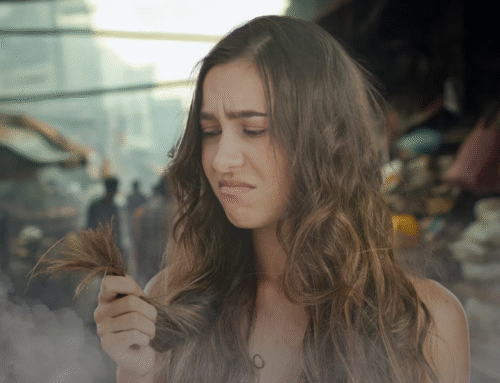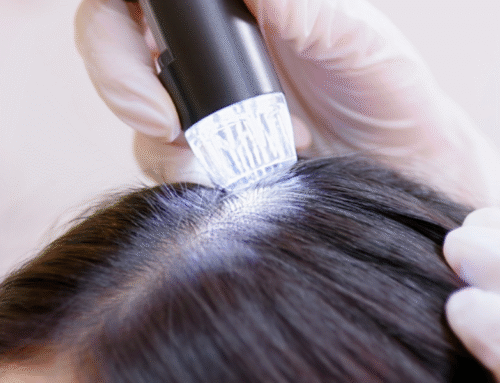How Does Chemotherapy Affect Hair?
Chemotherapy is one of the most effective treatments for fighting cancer, but it also comes with significant side effects—hair loss being one of the most visible and emotionally challenging. For many people, losing their hair during treatment is not only a physical experience but also a deeply emotional one. In this article, we’ll explore how chemotherapy affects hair, why hair loss occurs, how to manage the process, and what strategies can help promote regrowth.
1. Why Does Chemotherapy Cause Hair Loss?
Hair grows from hair follicles, which are living cells that divide rapidly. Chemotherapy targets fast-growing cells in the body, such as cancer cells. However, it does not distinguish between cancerous and healthy cells, which means hair follicles are also affected, resulting in hair loss.
The severity of hair loss depends on several factors, including the type of chemotherapy drug used, the dosage, and the duration of treatment. Some people may experience thinning, while others lose all their hair—including eyebrows, eyelashes, and body hair.
2. When Does Hair Loss Start?
Hair loss typically begins between two and four weeks after starting chemotherapy. It can occur gradually or suddenly in clumps. In some cases, patients may feel scalp sensitivity before the hair starts to fall out.
Hair loss usually continues throughout the treatment. In most cases, hair begins to grow back after chemotherapy ends, although its texture or color may change.
3. The Emotional Impact of Hair Loss
Losing hair can be emotionally difficult. It’s a visible reminder of the illness and may affect self-esteem and personal identity. Common emotional responses include:
-
Anxiety and sadness, triggered by changes in appearance
-
Loss of confidence, especially in social or work settings
-
Difficulty accepting the illness, as hair loss makes cancer more visible
It’s important to remember that everyone experiences this process differently. Seeking emotional support—from support groups, loved ones, or mental health professionals—can be a valuable resource during this stage.
4. Strategies for Managing Hair Loss
While hair loss is often unavoidable during chemotherapy, there are ways to manage the process with more comfort:
a) Preparing Before the Hair Falls Out
-
Cutting hair short before it begins to fall can make the transition easier
-
Some people choose to shave their heads to feel more in control and avoid shedding in clumps
-
Acquiring wigs, turbans, or scarves in advance can help one feel more prepared
b) Caring for the Scalp During Chemotherapy
-
Use gentle, sulfate-free shampoos to prevent irritation
-
Avoid heat styling tools like blow dryers and flat irons
-
Apply moisturizing oils or gentle lotions to reduce dryness and sensitivity
c) Using Cooling Caps
Some patients use cooling caps, which work by reducing blood flow to the scalp during chemotherapy. This may minimize damage to the hair follicles and reduce hair loss. However, effectiveness varies depending on the type of chemotherapy used.
5. Hair Regrowth After Chemotherapy
After chemotherapy ends, hair typically starts to grow back within three to six months. In some cases, it may return with a different texture or color. This phase requires patience, as new hair is often finer at first before regaining its usual strength.
Tips to Stimulate Hair Growth:
-
Scalp massages to improve blood circulation and support growth
-
Balanced diet rich in protein, iron, biotin, and omega-3 to nourish hair follicles
-
Natural products like rosemary or castor oil may improve scalp health
-
Avoid harsh chemicals such as dyes or perms during the early regrowth stage
6. Will Hair Always Grow Back the Same?
In most cases, yes—but some patients notice changes in texture or color. Hair might come back curlier, finer, or grayer. Over time, it often returns to its original state.
In rare cases, if the treatment was particularly aggressive or prolonged, hair regrowth may be slower or incomplete. A dermatologist can help explore additional treatment options if needed.
7. The Importance of Emotional Support During Hair Loss
The process of losing and regrowing hair is deeply personal and unique. Having the support of loved ones, healthcare professionals, and communities of survivors can make a meaningful difference in how this phase is experienced.
It’s essential to remember that hair loss is temporary and does not define your beauty or worth. The strength and resilience gained throughout cancer treatment are far more meaningful than any physical change.
Final Thoughts
Chemotherapy affects hair by targeting fast-growing cells, often causing partial or total hair loss. While the emotional impact can be intense, there are many strategies to cope with it in a more positive and empowered way. Preparing ahead of time, adopting gentle care practices, and staying emotionally supported can all contribute to a more manageable experience.
As hair begins to grow back, focusing on your **overall well-being—physically and emotionally—**is key. With time, patience, and self-care, confidence and strength will return, along with your hair.
Ready to restore your hair’s health? At Wearehairwise, we provide expert advice, treatments, and products to help your hair grow back stronger and healthier than ever. Explore our hair care solutions and start giving your hair the care it deserves. Visit us at 245 SE 1st ST #201, Miami, FL 33131 and find the perfect treatment for you. Your hair will thank you!





